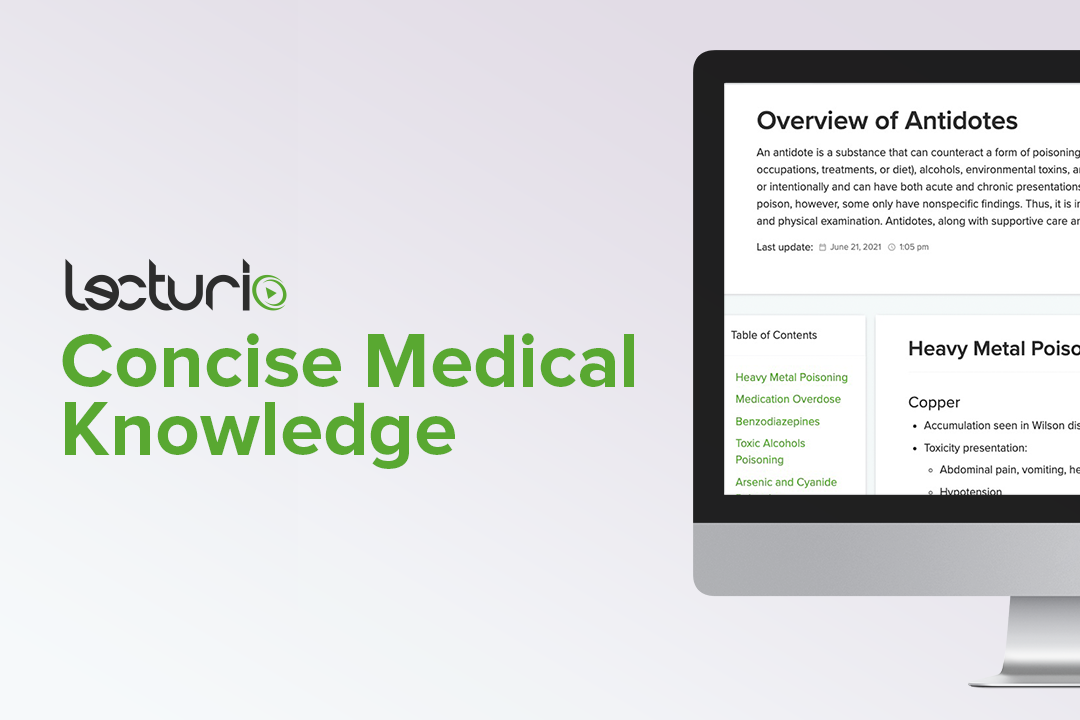Playlist
Show Playlist
Hide Playlist
Aspirin Toxicity
-
Slides Poisonings in Children.pdf
-
Download Lecture Overview
00:01 So let’s go through some of the common overdoses and poisonings in children and how we manage them and what we worry about. 00:10 Let’s start with aspirin. 00:12 Aspirin toxicity is a very unique pathologic toxicity with very unique presentation. 00:21 Aspirin can cause fever. 00:23 This is through uncoupling oxidative phosphorylation. 00:27 This can also result in a metabolic acidosis. 00:31 Additionally, aspirin has a central effect on the brain which causes a primary tachypnea and a respiratory alkalosis. 00:39 So they can get both first a respiratory alkalosis a and then a metabolic acidosis as a result of their aspirin toxicity. 00:48 These patients may have an increased heart rate as well. 00:51 They may be agitated or, in severe cases, they may be in a coma. 00:56 They often appear pale or diaphoretic and they may be frankly acidotic or hypoglycemic. 01:02 The classical symptoms also include nausea and vomiting due to the resultant gastritis and tinnitus. 01:09 Furthermore, the use of aspirin is contraindicated in children, due to their risk of developing Reye syndrome, which is characterized by fatty degerative liver failure and encephalopathy. 01:21 So children can have a variety of presentations along the spectrum. 01:26 Aspirin is sometimes in other preparations and you should be aware of that especially in young children who’ve overdosed on something. 01:35 So you can find aspirin in Pepto-Bismol, which looks pink and delicious to the young children. 01:40 You may find it in wart remover medication and you may find it in some herbal remedies. 01:46 So remember if you see a child who got into the wart remover and they have a fever, that this is probably, ironically, aspirin overdose. 01:54 So how do we manage aspirin toxicity? Well, there has to be some care with the airway portion of the ABCs. 02:02 Remember, they may have a respiratory alkalosis and a metabolic acidosis. 02:08 And so close monitoring of their acid-base status is critical in a patient who’s been intubated with aspirin toxicity. 02:16 Likewise, you may want to correct any hypokalemia or hypoglycemia. 02:21 And what’s key often in all overdoses or at least many is GI decontamination. 02:27 If you can get to that patient within an hour of when they overdosed, you can administer charcoal and reduce the amount of drug that’s absorbed. 02:36 Also, we may alkalinize the urine in patients with aspirin toxicity because that may be a more efficient way of clearing the aspirin through the kidney.
About the Lecture
The lecture Aspirin Toxicity by Brian Alverson, MD is from the course Pediatric Emergency Medicine.
Included Quiz Questions
Which of the following is a more common finding in aspirin toxicity?
- Fever
- Hyperalert state
- Bradycardia
- Metabolic alkalosis
- Excessive bleeding
Which of the following is NOT recommended in the management of aspirin toxicity?
- Urinary acidification
- Gastrointestinal decontamination
- Correction of hypokalemia
- Volume expansion
- Hemodialysis
Customer reviews
5,0 of 5 stars
| 5 Stars |
|
5 |
| 4 Stars |
|
0 |
| 3 Stars |
|
0 |
| 2 Stars |
|
0 |
| 1 Star |
|
0 |




